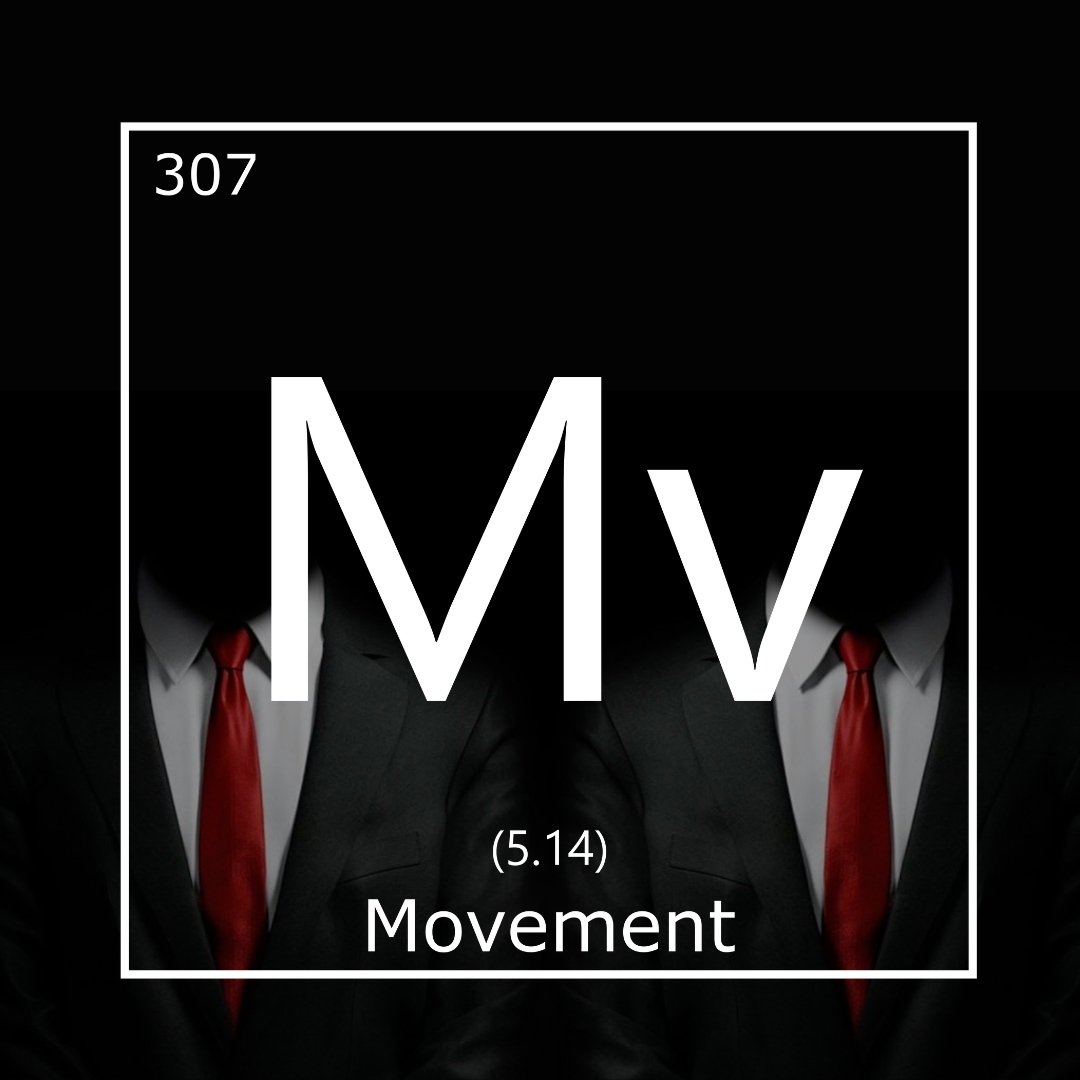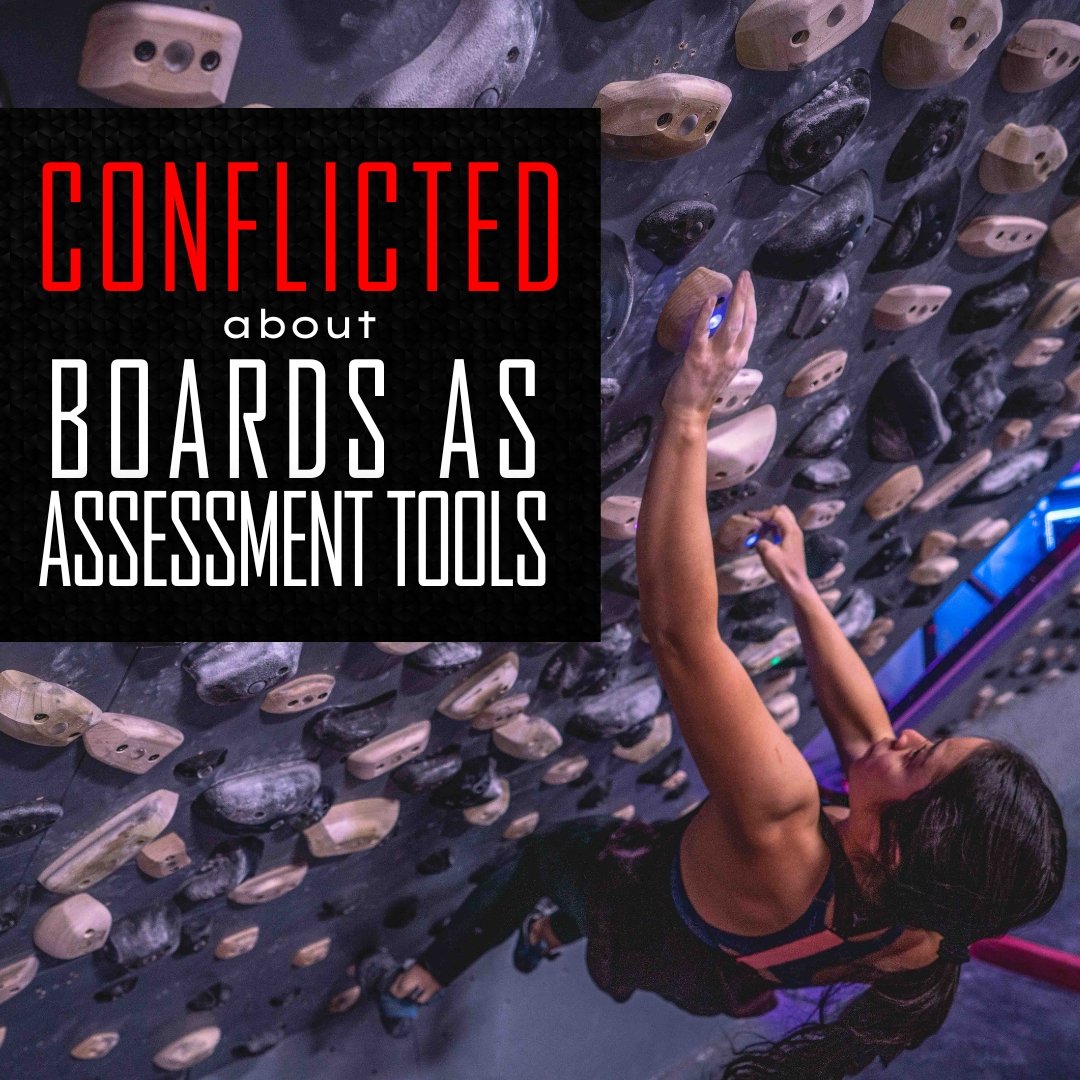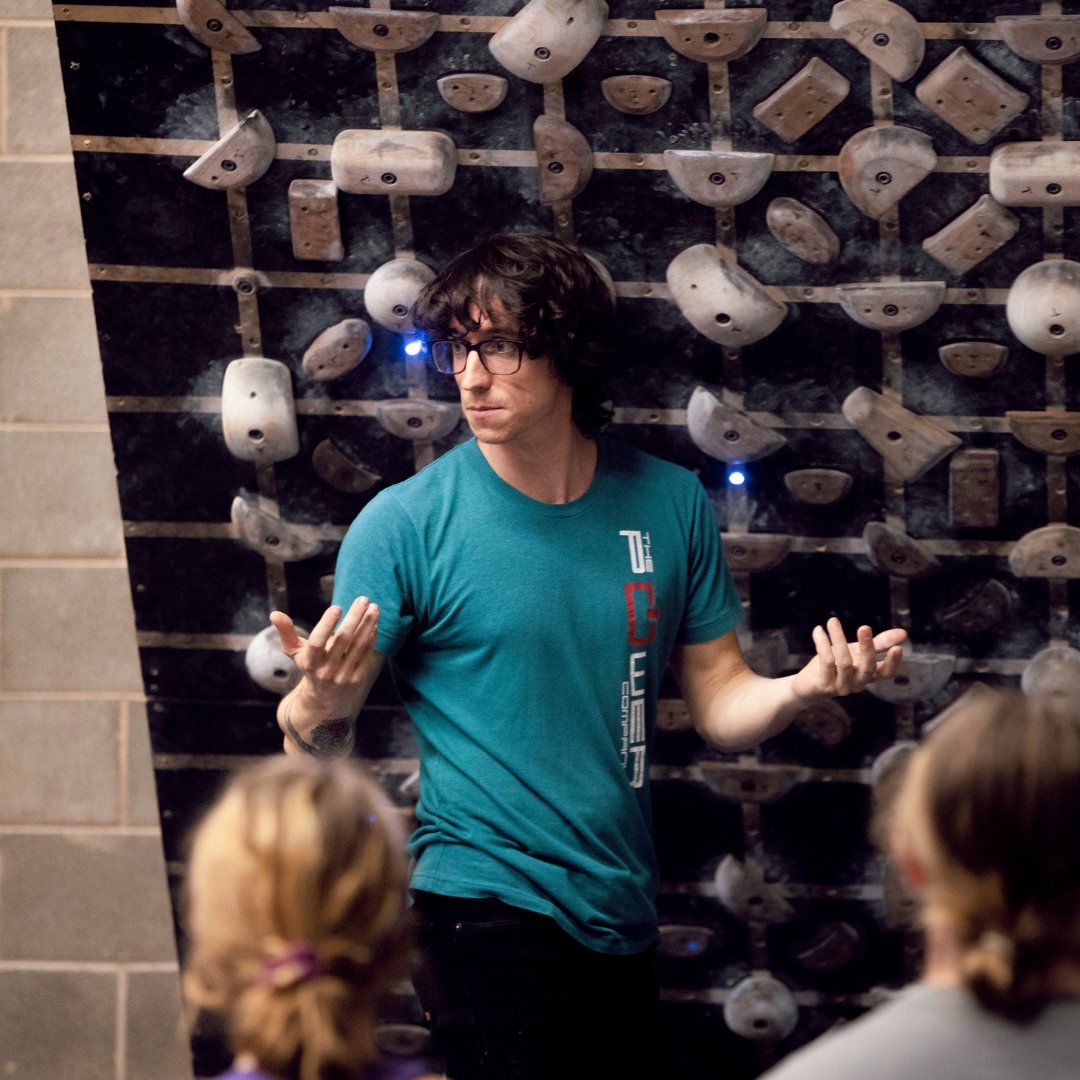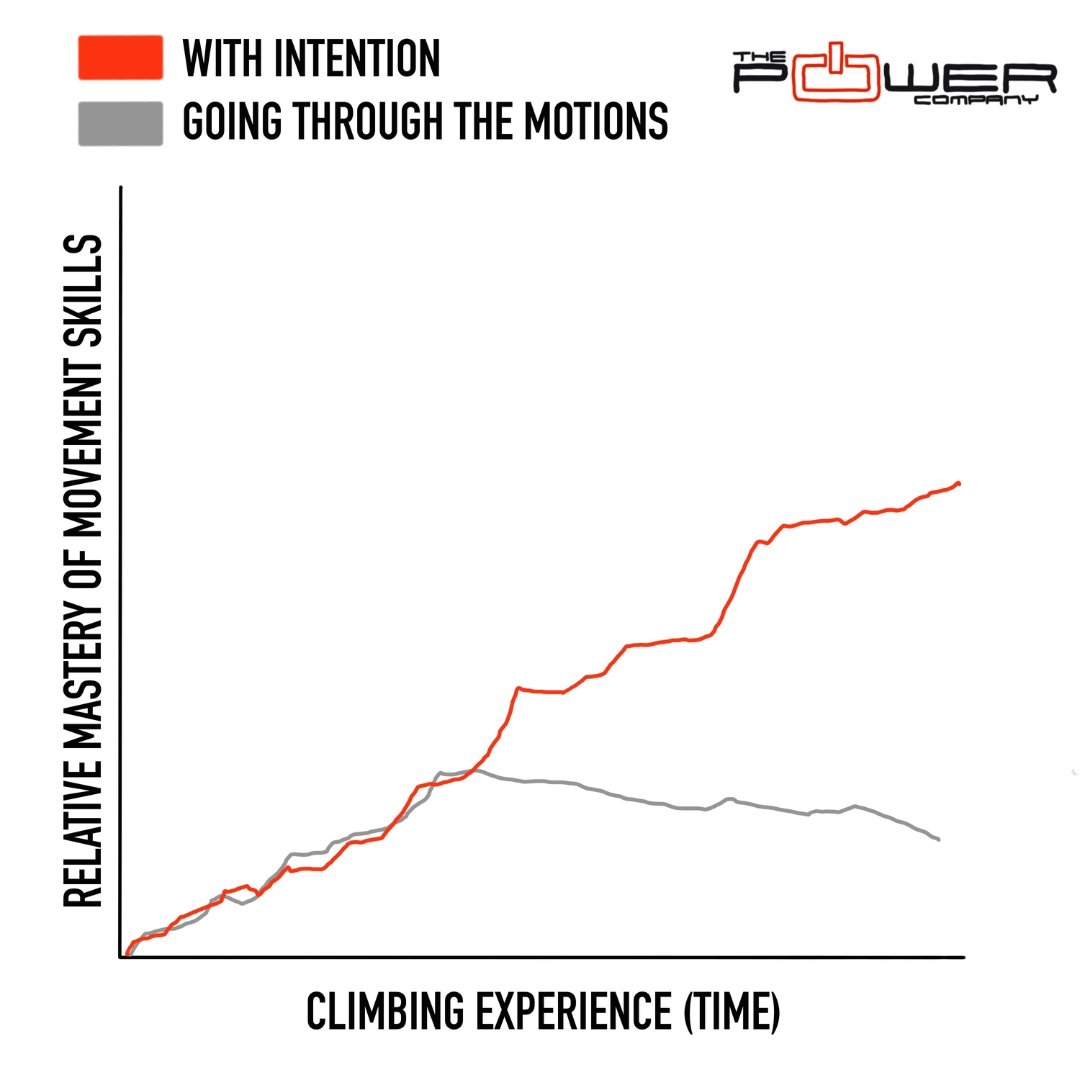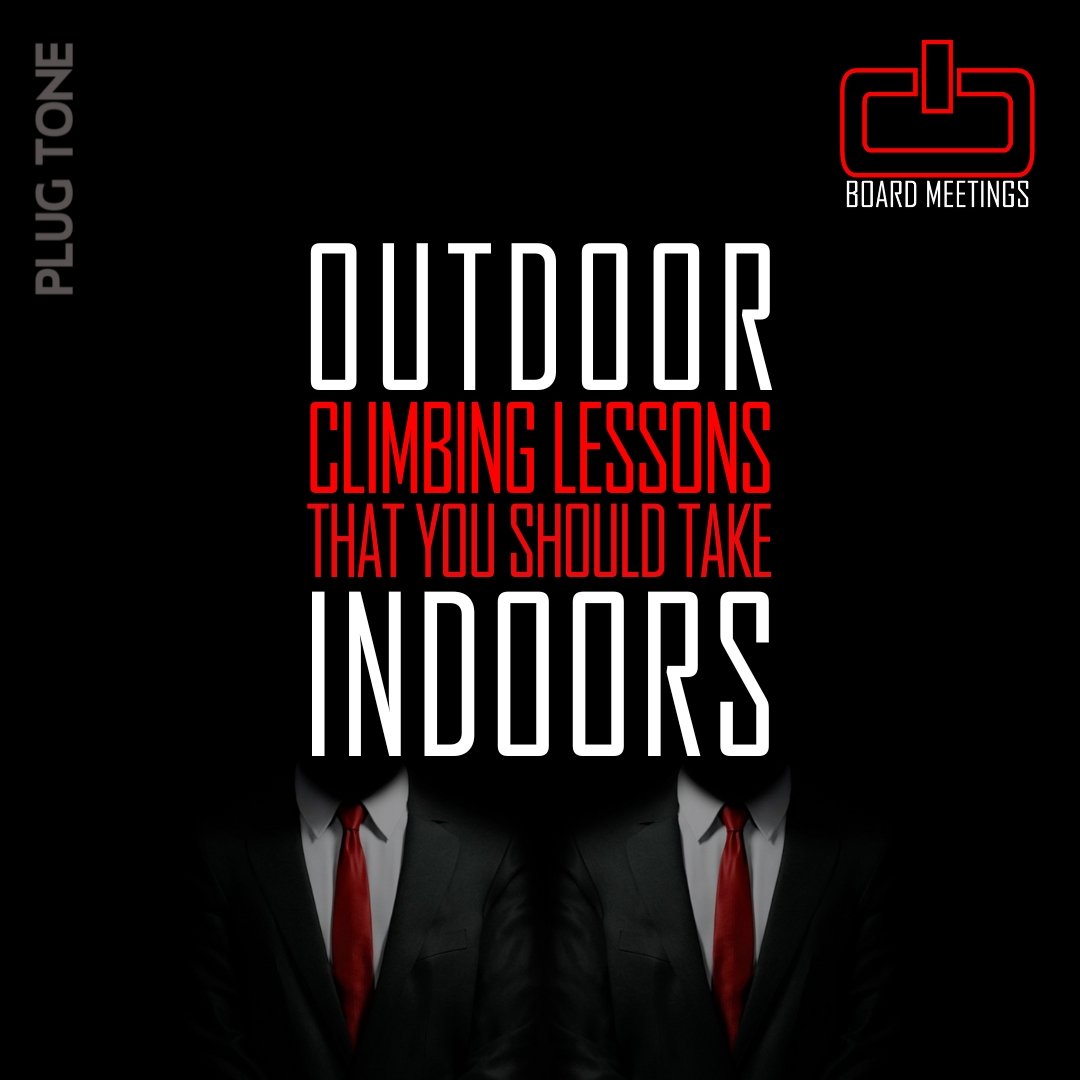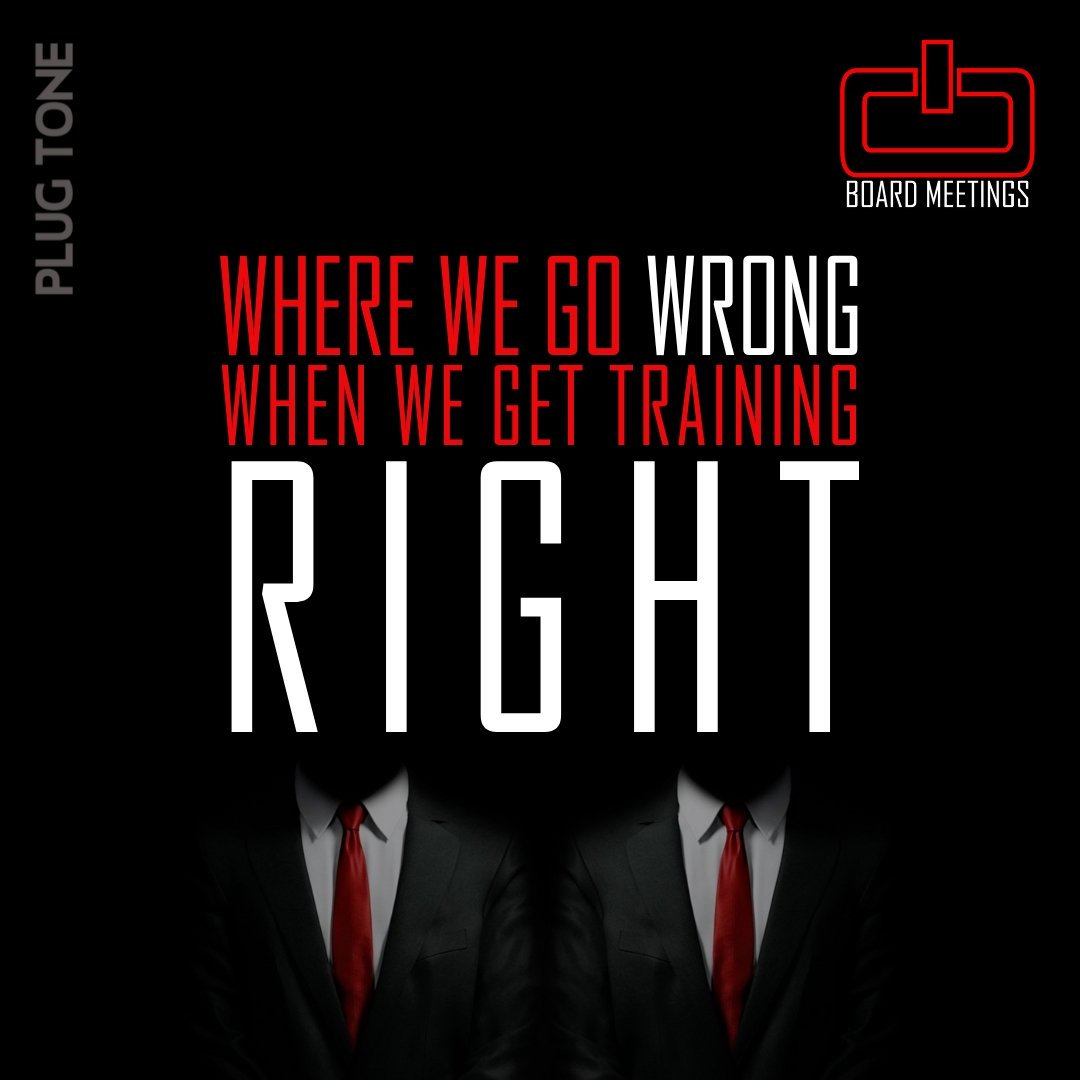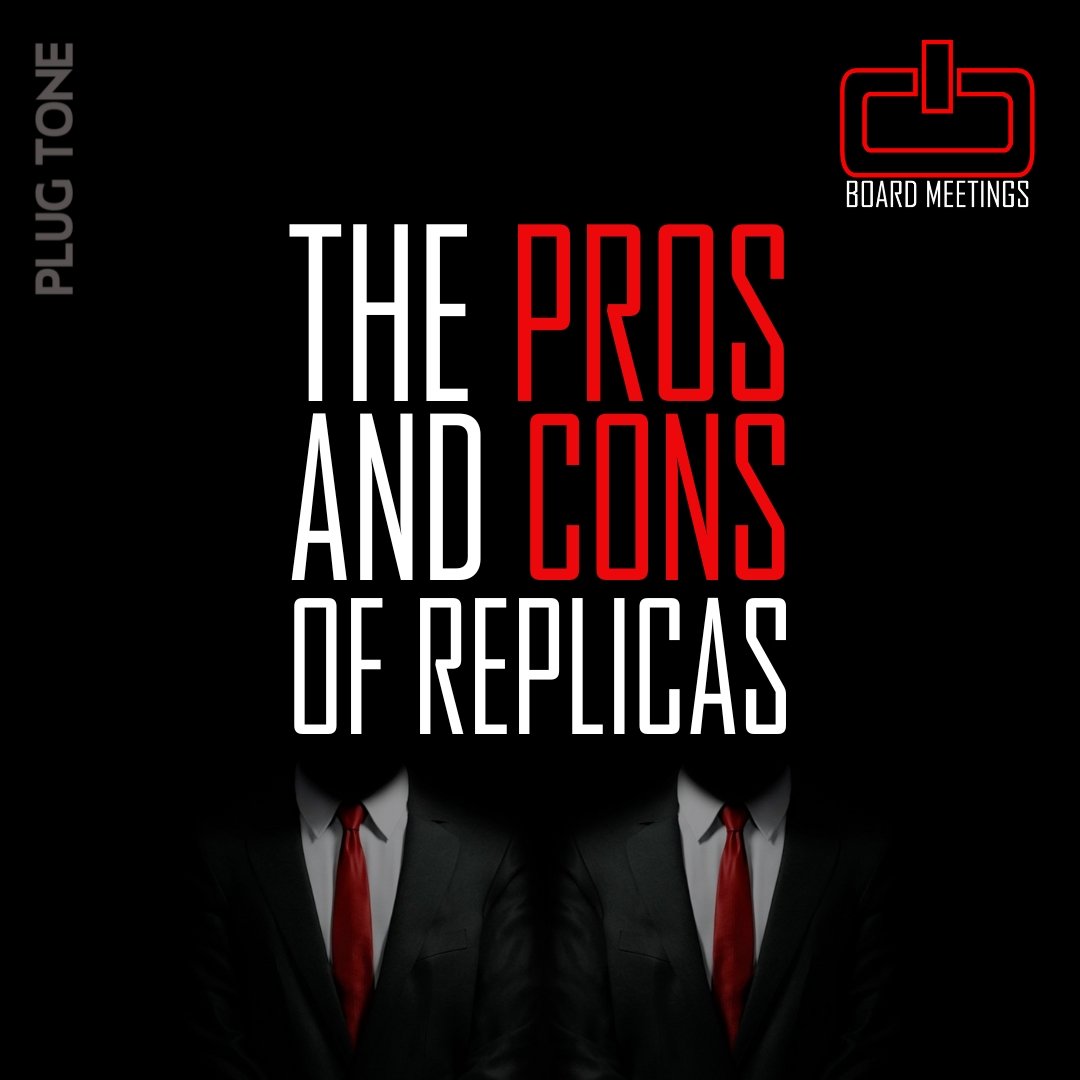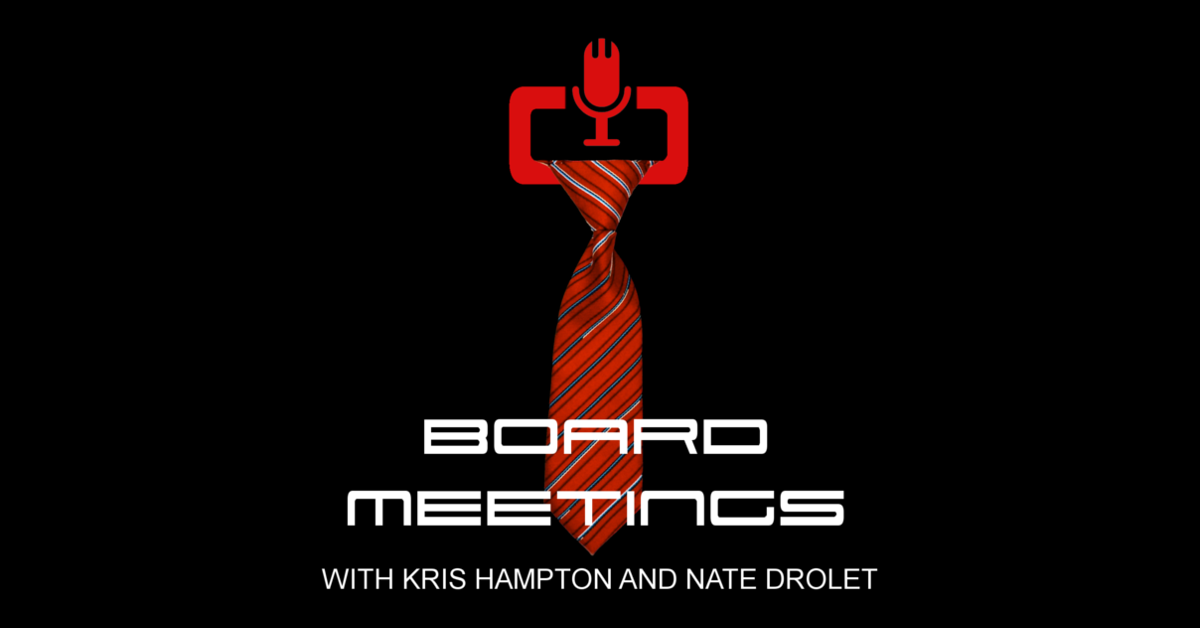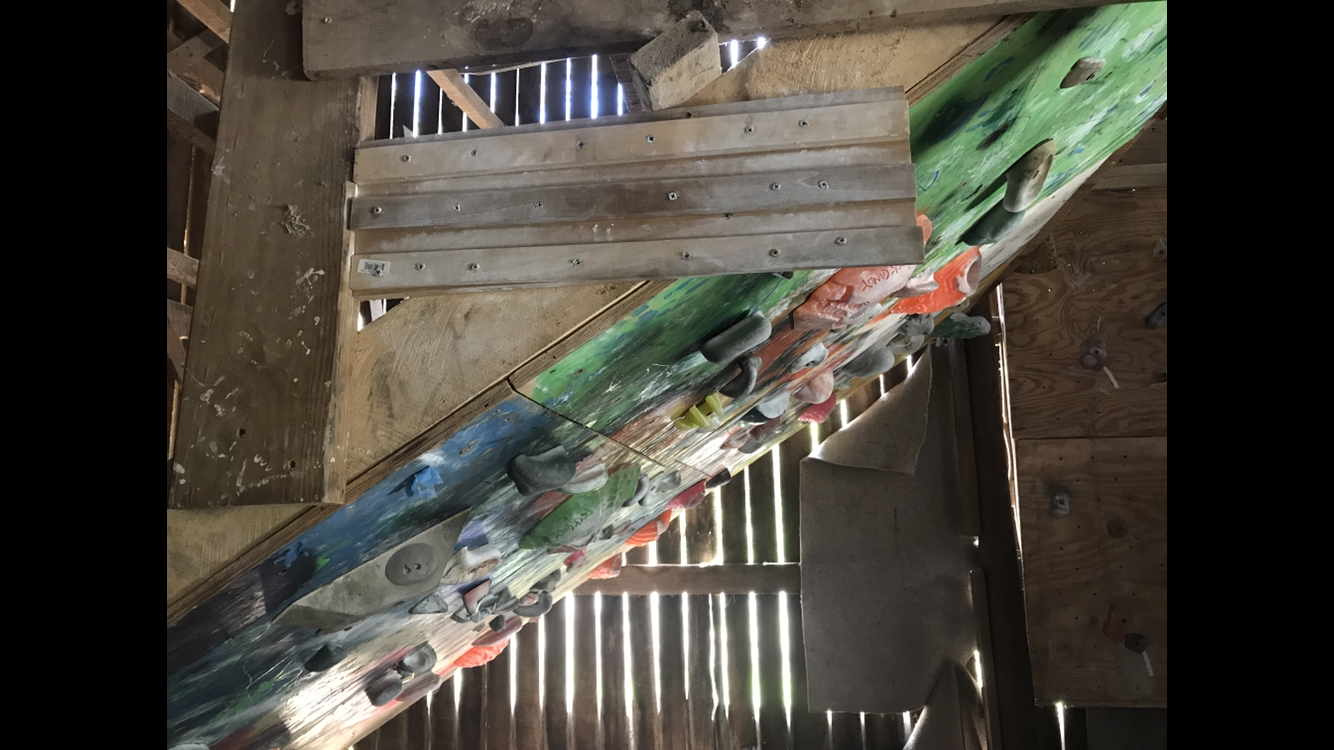Board Meetings | 5 Reasons Simple Training is Better with Nadya Suntay
With the seemingly endless amount of information available online these days, and the newest training trends popping up in reel after reel on our feeds, it can be pretty tough to know what to keep and what to toss when it comes to our own training, and really tempting to overcomplicate things. In this Board Meeting, Kris chats with our very own coach Nadya Suntay to remind us why it’s better to keep it simple.
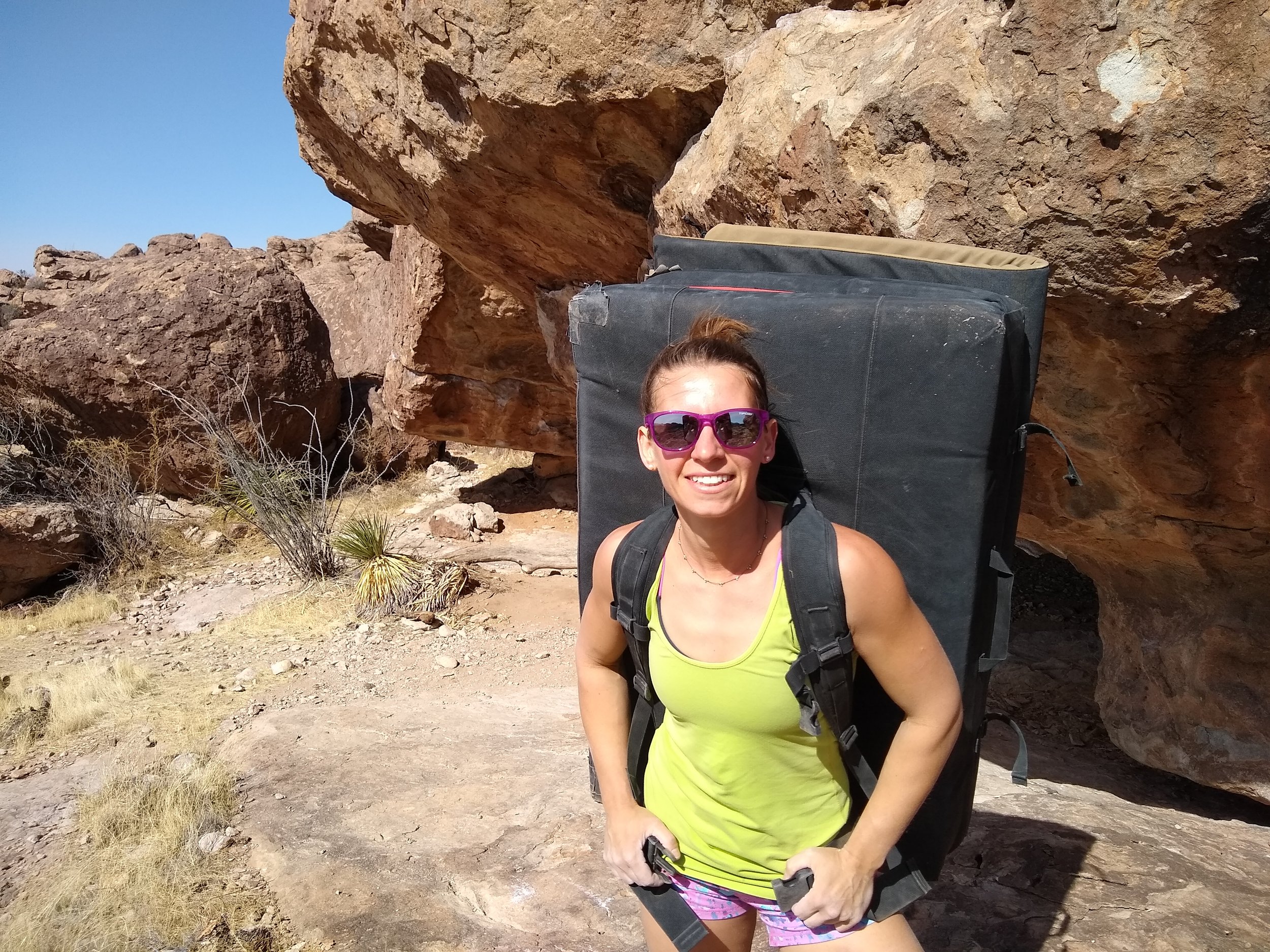
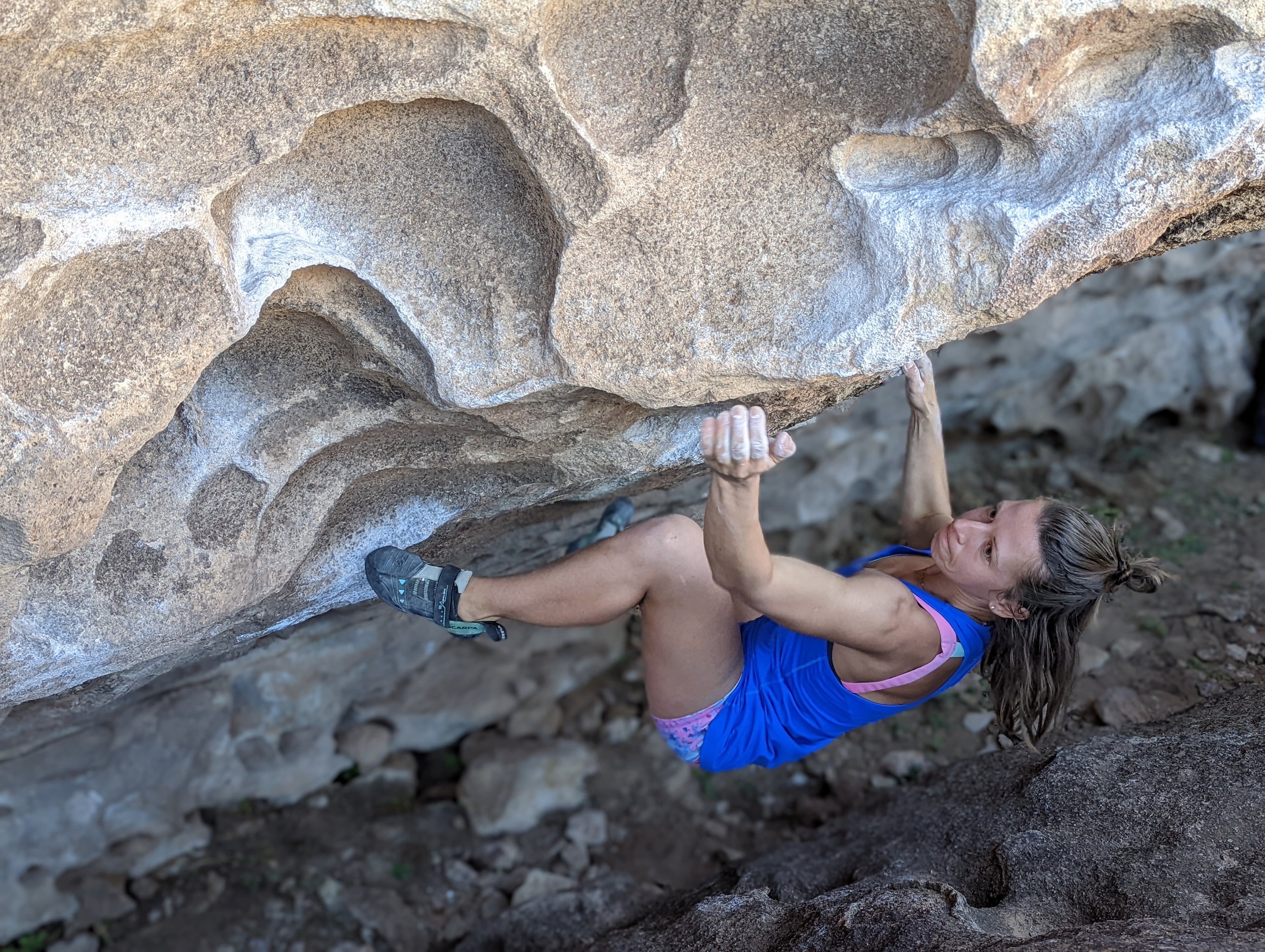
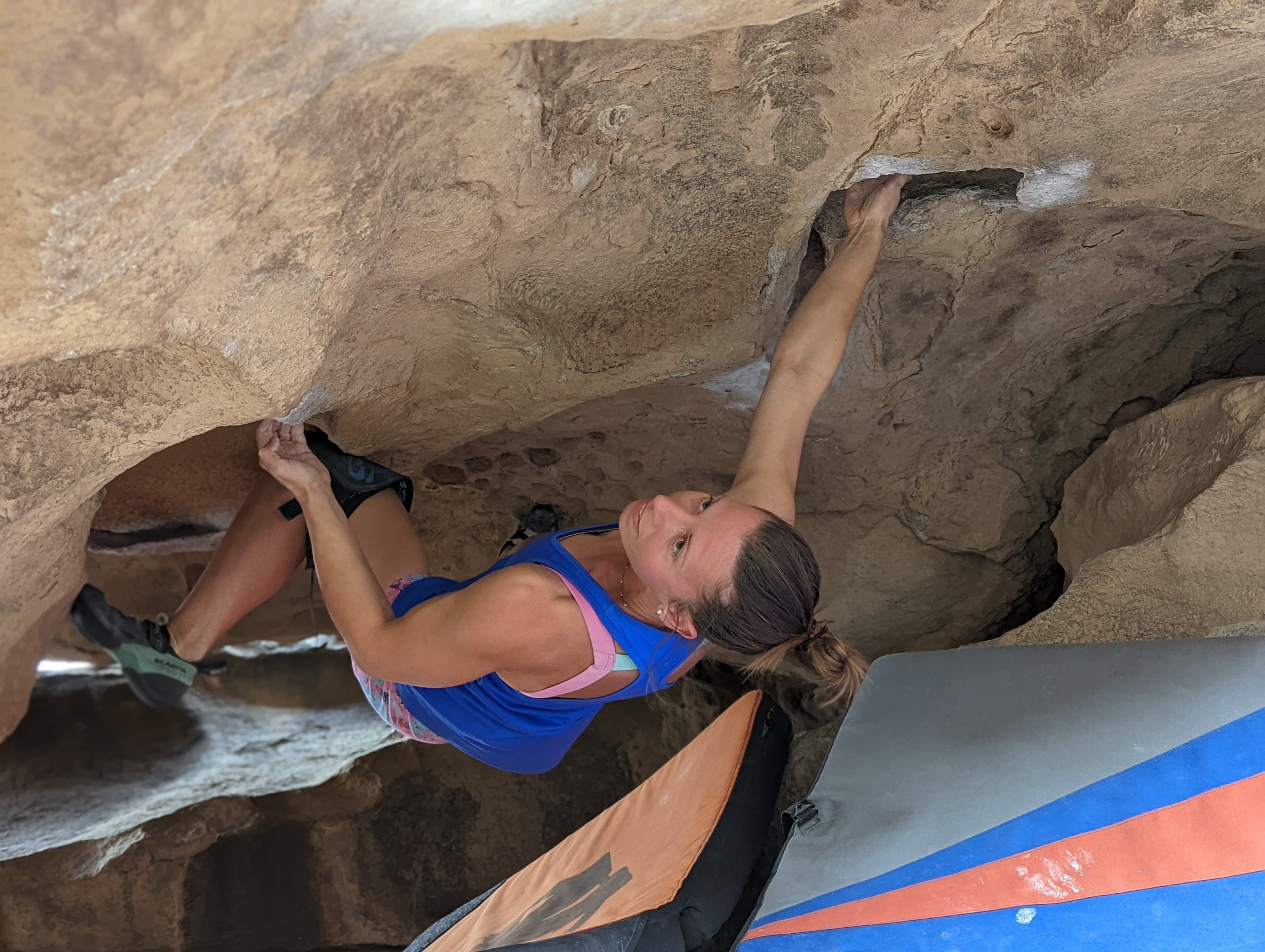
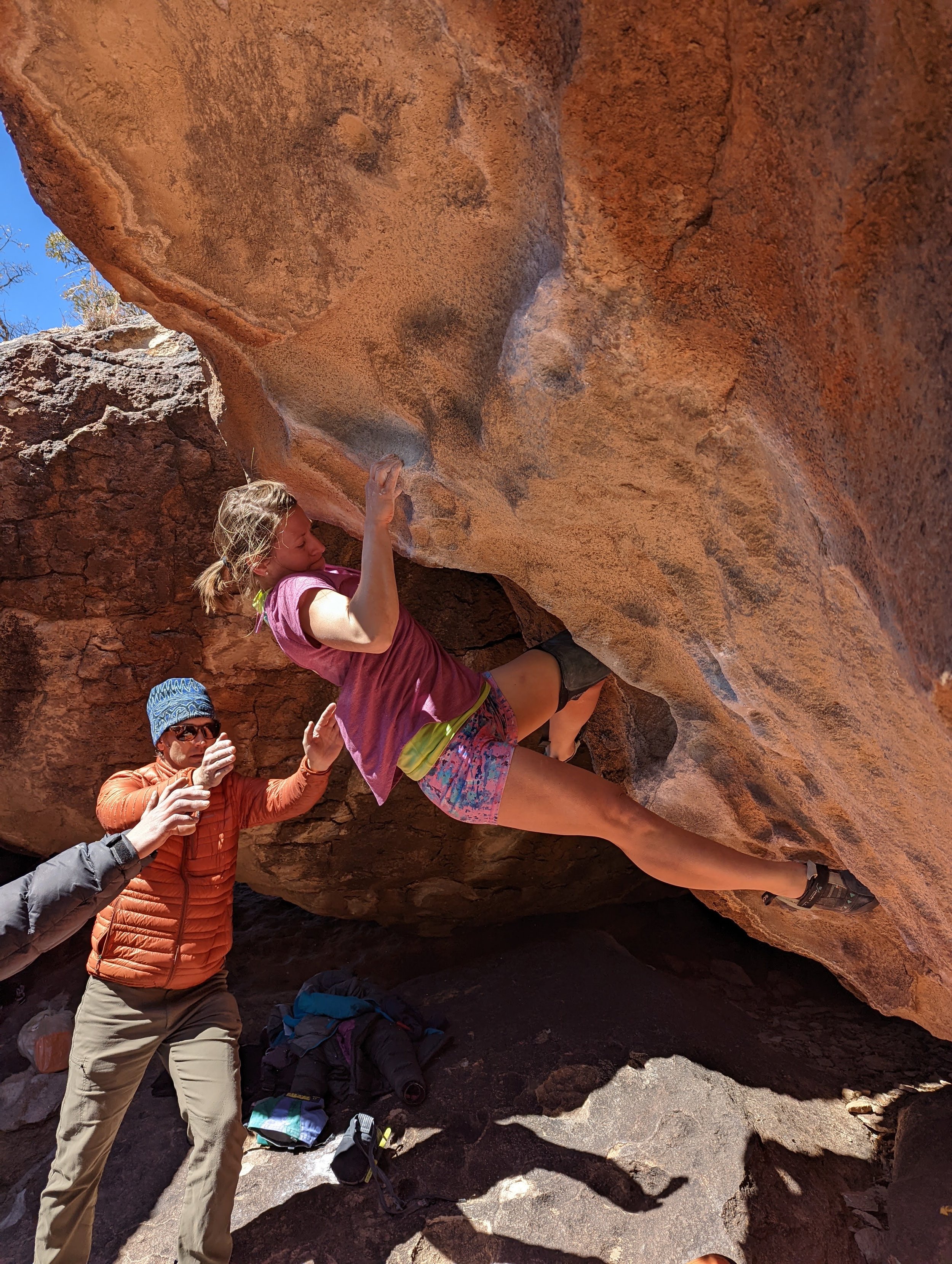
FULL EPISODE TRANSCRIPT:
Kris Hampton 00:37
What's up, everybody? I'm your host, Kris Hampton.
Nadya Suntay 00:40
And I'm Nadya Suntay.
Kris Hampton 00:42
And this is our first board meeting together. So let's tell everybody about you a little bit you've been working with us for. I'm terrible with time, but a couple of years at least, right?
Nadya Suntay 00:56
Yeah, ever since. Pretty much like since COVID started. So yeah, it's been a couple years. I think this may be going on three. Yeah.
Kris Hampton 01:05
Yeah, I think that's probably right. And you sort of run our Proven Plan group chat. And you know, you're always in there giving folks advice. And, and you also coach some of the Proven Plan clients, as well as some Custom clients.
Nadya Suntay 01:27
Yep. Yep, that's correct. Yep. I started, I started mostly with the Proven Plans, but I do a little bit with Custom as well.
Kris Hampton 01:35
You know, in a future episode, you and I should talk about, you know, some of the things you you think people can do to get the most out of their Proven Plans, whether it's, whether it's a Proven Plan with or without coaching. Yeah, I think that could be really interesting for people to listen to.
Nadya Suntay 01:54
I think, I think that'd be great. Because I do get even some of the people that start out with me, like, you know, the people that I'm coaching, they'll ask me, "Hey, like, what can I provide for you, that will help me, like... what are the things that you want me to tell you?" So I think that's really important for people to understand. And really, the more information they can give us, the better we can help them through their projects or through their training.
Kris Hampton 02:24
Yeah, I think coaching is super valuable. You know, we're going to be talking today about some of the reasons why, but I think you know, talking tactics, talking approaching the things you want to climb on, just having somebody to talk to about, you know, "I'm feeling nervous about getting on this hard thing," or "Do you think I should try it two days in a row?" or things like that. I think that's where it becomes really, really valuable for folks.
Nadya Suntay 02:54
And I think too, accountability, right? If they know there's somebody who is asking them, you know, "How's your training going?" you know, or like, "Are you getting outside on your projects?" I think, then folks are more inclined to keep training because they have somebody that's kind of like looking out for them in a sense, I guess.
Kris Hampton 03:16
Yeah, totally. And so today's topic, we're going to, we're going to talk a little about why simplicity is the better option over these, like super complex training methods that that seem to pop up every now and then. And, and maybe they seem like they pop up more and more because of social media. But I think in reality, they're probably going at about the same pace as they always have, we just see them there in front of our faces a lot more often. And it can be really distracting, like to see the shiny new thing that you want to add to your training, you know. And as coaches, I think it's important to remind people that there's a really good reason for simplicity, and I thought you'd be the perfect person to talk to about this, since you are dealing a lot with the Proven Plans and that's sort of the platform they're built on.
Nadya Suntay 04:14
Totally. Yep.
Kris Hampton 04:16
So we've got our top five here, we're gonna go sort of in order of, you know, down to the most important, but in reality, like all these Board Meetings, if one hits you more than the other, then it's probably the most important one for you. So don't take this order too seriously. Number five reason: you should be planning to do this long term. So if it's super complex, if it's really complicated, doing it in the long term isn't a super sustainable way to go. Simple is going to be better when you're regularly having to create new plans to stretch this out, you know, infinitely for as long as you're training for climbing. It's going to be harder if it's more complicated.
Nadya Suntay 05:13
No, totally, I think that we especially, we have a lot of things going on in our lives in general. So you don't want to make something, you don't want to make a plan and then make it so complicated that you can't follow through. So really, the best thing to do is just make something very basic, very simple, something that you know that you will stick to, that makes sense. And then just follow through. And then as you go along, you can add things, you know, as you progress and get better at creating a plan for yourself, then you can add things. But really, I think it's important to just get the basics down first. And, and then maybe, at some point, add and make it a little more complicated, but it's just easier to follow if you just, you know, have something very simple, something you understand. And stick with it, really, and be consistent with it.
Kris Hampton 06:15
Yeah, I think you know, I'm sure you've heard this from folks, and you may have been there yourself, I know I have. You sit down to write a training plan for yourself and all of a sudden, there are like 5,000 things you're thinking about, "And do I need to do this? And do I need to do this? And I have to add in this thing I saw on Instagram the other day, and this thing looked like it is exactly what I need..." And, and then when you take a step back and look at it, you're like, wow, unless I have like 18 hours a day to train, there's no way I can fit all of this in, for sure.
Nadya Suntay 06:51
And I think it's also important to write down your goal. Like what is your main goal, right? And then what are the steps that you need to follow to get there?
Kris Hampton 07:05
That's a really good way to keep it simpler is like, put these blinders on. Like, this is my goal, these are the things that will move me toward my goal. Maybe right now I don't need to worry about all these things out on the periphery.
Nadya Suntay 07:20
Exactly. And then I think you should have like a main goal, and maybe, maybe a sub category, maybe like another smaller goal. But really, your focus should be that bigger, that big picture, that bigger goal, and then you know, what can you do to achieve it? And then maybe write down like, you know, five things. Keep, keep it short. Because you don't want like 20 things that, you know, again, you don't want to go crazy. So just keep it concise, keep it short, things that you know you'll actually stick to them.
Kris Hampton 07:57
I think most people who sit down and do this are probably going to – even if they think they're keeping it simple – they're probably going to end up more complicated than they need to be. So I think a good thing to do is, you know, let yourself, try to simplify. It's going to be too complicated. Go into the gym. And those first handful of sessions, try to figure out where the main points are. Like, did I make this thing that I don't actually have equipment for? Or it doesn't really fit because the training room is upstairs and the climbing is downstairs. And I tried to combine all these things so I can get this hormonal response. And, you know, and now I'm running up and down stairs in between climbs and that's making me tired. And so find what these main points are and then sit down again and try to reduce those main points, simplify it even further once you've tried the session. You know, that's another benefit of a coach, I think, is we understand a lot of these main points because we've seen them over and over and over. And we can create sessions that flow a little more smoothly.
Nadya Suntay 09:09
Oh, totally. And, you know, I get people, even in the people that I coach in the Proven Plans, they're like, "Well, can I add this? Can I add this?" I'm like, "Well, I mean, you can, but are you doing all the other things that are actually in the plan? Because if you're not, then why are you trying to add all these extra things in?"
Kris Hampton 09:29
I'm glad you said that. That's so damn common for people to just be like, "Well, what about this? And what about this? And I need to add this. And you know, I want to do my first V3, so why am I not campusing three days a week?" You know, things like that, that's like, that's not what you need right now. That's, that's why you hired us. We have a much better idea of what you need. So let's, let's stick to what we've got.
Nadya Suntay 09:57
Totally.
Kris Hampton 09:59
Our number four, and you alluded to this a little bit: life, inevitably is going to get in the way of your super complicated program. Things are going to come up, you know, it's just a fact of life.
Nadya Suntay 10:17
Yeah, so, you know, we all have very busy lives. Everyone does. Like when somebody says, "Well, I'm too busy," I'm like, "Well, yeah, we're all busy."
Kris Hampton 10:26
Like, yeah, me too. Yeah. Yeah.
Nadya Suntay 10:31
And I think that's where, again, with a coach, it's, it's really nice that they can help you figure out, well, what should you focus on during the session? You know, let's say you only have 45 minutes, an hour, where normally maybe the session would take a couple hours. So in this case, maybe you need to cut down some of the drills, you know, like warm up, do some, do maybe half of the drills that are in your program, then go to your hangs and then do your limit bouldering. So, it just, it's important to understand what you can cut out and still have a productive session. And I think that's where the coaching option is super helpful.
Kris Hampton 11:13
You know, one of the things we've done in the, in building the Proven Plans is... you know, I want to make sure that we hit the things that we need when I'm building the sessions, but then I also try to make sure there's time for the fun things that I know most climbers really want to do when they're in the gym, you know. These plans are going to be much easier to follow if they're also fun to do. But there are a lot of times where folks don't have the time to fit the whole session. And especially when it's like an endurance session for say, Climb 5.12 or something where it's, it's going to be a higher volume, it's going to take more time, you're climbing on sport climbs in the gym. So there's lots of logistics to work out. And these sessions can end up pretty long. So people will jump in the group chat and say, you know, or talk to their coach and say, "I don't have time to fit this whole session in." So what's the main focus? And you're right, that's where that's where simplicity really shines because we can just say, "Well, here, here's the main part of it. Get that done."
Nadya Suntay 11:13
Yeah. And a lot of times people think, well, if I miss a session, it's over. My training is derailed. Like I need to start over. But it's okay. It's okay to miss a session here and there. Like, you don't want to get in the habit of always missing sessions, but it's okay. Life is not coming to an end, training is gonna go on, you're still gonna make gains. It's okay.
Kris Hampton 12:49
And I think when it's more complicated, it's harder to get back in the gym and do those sessions again, right? Like, if you missed a couple of sessions, you're like, Oh, God, I, you know, I have to re-find my starting weight for this, and this and this. And I need to see how my intervals are going and adjust those. And all of a sudden, there's all this work you have to do to get your complicated plan back on track. So again, this is a great reason for staying simple. Keep the thing simple. It's going to be easier for you to, you know, to cope with, in your own brain, going back into the gym and starting again, you know, continuing on with your plan the way that it was, if it's not super complicated.
Nadya Suntay 13:41
Totally, agree. Yep.
Kris Hampton 13:45
Alright. Before we move on, you know, we are, we're coming out of – not that we're ever actually going to come out of the COVID era, but – certainly, there was a time where every week we were seeing, you were seeing it a lot in the group chat, more gyms closing down and then gyms opening back up for a week and then closing again. And, you know, people's schedules going just crazy. And they, they couldn't keep up with it. They couldn't understand it. They just had to fit things in where they could. And I think that happens in our lives more often than we want to admit, that other things pop up, our schedule gets off, you know, we can't keep things perfectly aligned on our calendars for months and months at a time. It's really hard to do. And one thing I definitely saw in that Proven Plan group chat was when people were asking for advice, when people were asking to, you know, for us to help shift things around for them, it became so much easier for them to, you know, have this, this mental health help that is climbing, in a lot of cases, you know. Going into the gym and just getting your training done can be really valuable for your self-care. They were finding that the simpler Proven Plans were easier to stick to if they had it laid out for them. And it's just, you plug this session in, and you go to the gym, and you don't have to think about it. And I think that was really valuable for a lot of people during, especially those first couple of waves of COVID.
Nadya Suntay 15:36
No, for sure, and I think just not even during COVID, but in general, a lot of people go into the gym and they just don't know what to do. They don't know where to start. They, a lot of times, will just climb with their friends, maybe do like add on, I don't know, like they just don't, they don't know what to do. And then they never make gains because they just, they just don't ever really know how to structure a gym session. So I think the Proven Plans are super helpful in giving people structure, something to follow, something that's consistent. And then in the end, they, they're not only working on movement technique, they're gaining strength, they're gaining confidence. So there's just, so there's just a lot of gains from having something structured, something to follow when you go into the gym versus just aimlessly climbing.
Kris Hampton 16:40
When life gets in the way, your brain power and your emotional power are taken up with so many other things, you know. You've got work that's getting busy and stressful, you've got family life, you've got, you know, all of these other things going on. So having a really complicated training plan in the midst of life taking over a lot of your, your cognitive processing powers just feels like a grind when you go into the gym. So why not have it really simple, have it easy to follow, and, and don't make it a stressor as well.
Nadya Suntay 17:22
Simple is fun, too, like, you know? Just, when you go and go in, you do your drills, which I think are fun – I think that a lot of our movement drills are actually just really fun, so... and it's a great way to start the session, set yourself up, you know, for a successful time in the gym. So I totally agree. And, and like you said, you know, a lot of, a lot of people climb in the evening right after work, after they've, they've had this full day where their brain is working, and they're just, they're tired. They don't want to think about, "Well, what am I going to, what am I going to do during the session?" And it's nice to have something that's already laid out for you. You don't have to think about it. And you just follow, follow, you know, the sessions that we have planned out and, and they're fun.
Kris Hampton 18:16
Yep, absolutely. Alright, I'm going to take what you just said about drills and use that to move us into our number three, which is we really only have so much adaptation potential anyway. You know, you can try to get better at all of the things at once, but it's going to feel really, really slow when you look at the gains that you're actually making. Focusing on a thing or two at a time and in an order that makes sense for preparing you for your climbing season or your performance time is so much better in terms of the gains that you actually have the ability to make. And I think, you know, where drills come in there is that the basics are so important. We want to be able to move well in order to translate the strength that we're gaining to the wall.
Nadya Suntay 19:18
I think also like one of our drills that we do is like the sloth and the monkey. Moving well and moving precise, and in a way that's not wasting energy, is super important when you're on your project outside. Like if you can move well, move quick through some of the easier sections, then you're wasting less energy. And that will in turn help you when you get to the crux. So I think it's really important to master these things in the gym. And then when you're on a climb outside, you can quickly tap into these movements that you've done so much in the gym that they come more naturally.
Kris Hampton 20:01
Yep, absolutely. You know, also when, when you're focusing on those basics early in the session – so I'll kind of lay out how I think about sessions: when I'm building a lot of these Proven Plans, you know, you'll come up, you'll come in, you'll, you'll do an off-the-wall warm-up that's pretty quick, just gets you moving. Then there's some on-the-wall very specific warm-ups that are asking you to move in certain ways, and asking you to start putting your attention to moving well and feeling good while on the wall. And that just gets you primed and ready to try harder things, not only physically, but also mentally. And that sort of leads you into the rest of your session. That's, that's in general, how our Proven Plans are built. It's very, very simple. We'll go through a few different drills that are laid out for you that have videos there for you, that are really going to hammer home the basics, that are arguably more important than your finger strength. Arguably more important than how much power you have is, do you know how to change your pace when it's, when it's a, you know, a situation that demands it? Things like that. And when you go in and you're, you're just looking forward to the complicated parts, you're going to fall right into your normal, the normal pace that you climb, the normal style that you climb with, you're not going to be exploring outside of that at all. So simple not only gives you a better chance at adapting, but it also gives you more time to be able to spend on these things that aren't your normal go-to. Alright, let's take a, let's take a quick commercial break. And we'll come back with our top two reasons that simplicity in your training plans is better.
Kris Hampton 22:11
Ad Break: Sport climbing season is coming fast. Got a nemesis route you need to clip chains on? For over a decade, we've helped climbers prepare for their goals. We've seen patterns emerge showing what's most effective for each level of climber. Those patterns became our Proven Plans, a training system that you can follow from complete beginner to 5.14 and beyond, with workouts geared toward your goals and focused on improving not only strength and power, but tactics and mindset as well. Each Proven Plan comes with a built-in group chat and an option to work directly with one of our coaches. We don't believe in a one size fits all approach to climbing. You shouldn't either.
Kris Hampton 22:52
Alright, we are back with our number two reason why simplicity is better in your training plans and it's that the simple methods have been proven. You know, and I don't say that just in terms of our Proven Plans, but for a lot of years, people have been anecdotally looking at the things that we've been doing, and seeing whether they work or not. You know, there may not be tons of research specifically into climbing yet but the simpler things that people have been doing for years have been proven – or not, and they've been thrown out. So these new complicated things are a gamble in a lot of cases, they may or may not work. So do you have the time to experiment on yourself and gamble with whether these things are going to work or not? Or would you rather stick with the simple things that you know work?
Nadya Suntay 23:51
I think it's also important to like, you know, we've talked about experimenting with, with different things like, but maybe keeping track, and you're really keeping track of what what is working for you, also I think is, I think it's super important. A lot of my Proven Plan clients are like, "Well, like, is the comment section for me or for you?" And I'm like, "Well, it's really for you to keep track." Like I read them, right? I go through and I read the comments, you know, there may be questions, but I think it's really important for for you to write down, you know, what is happening during your session, what is going well, what's not going well. And then that will really help you understand what's working. And when, when it's super complicated, like it's hard to keep track of all the things that are, that are going on with you, your body you know, your your mind, your mindset, too – so I think it's really important to keep things simple, keep track, understand what's working, and what's not working, and then build on from there.
Kris Hampton 25:10
Yeah, I mean, there's a reason that in these like really complex studies in sports science, they have to use these really complicated statistical models to figure out what all the data means. We don't, we don't want to have to do that when we're training. I don't, anyway! Folks out there like Dale loves that stuff. I don't want to go through that much computation to figure out whether what I'm doing works or not. And, and we have quite a few things that we know works. We may not know the mechanism by which it all works, but we've seen it work over and over and over. And those are the things that I end up putting in the training plans more often than not. And I often, even for myself, even though I love experimenting on myself, I very often skip the super complicated things that haven't been proven yet. You know, I'm not getting any younger, I need to get better while I can.
Nadya Suntay 26:20
No, I, I agree. I think, again, with everything going on in all of our lives, it's super stressful to have something complicated, especially in your training, to keep track of.
Kris Hampton 26:34
If we want this thing to be a fun, feel-good thing – and you know, don't get me wrong, training shouldn't maybe always be fun, there are going to be hard parts, there are going to be struggles, there should be – but the overall feeling of it should be that it's moving you forward, that it's enjoyable enough for you to do it again, right? And, you know, the more complicated and the harder to tell whether it's working, the less fun it's going to be, the less likely you are to repeat it. And we know that repeating a thing over and over and over, being really consistent with it, and gradually increasing the intensity or the volume or something is what makes us better. So yeah, you don't need things we're not going to do. Not gonna help.
Nadya Suntay 27:28
And it shouldn't feel like a chore, right? When things get complicated it, it feels like a chore. And you're like, "Oh, I really don't, I really don't want to do this, like, why am I doing this?" And like you said, then it takes the fun out of it. And then a lot of times, that's when you're like, "Well, why am I doing this?" And that's when you drop it and you're like, "Well, I'm done training. This is, this is too much." So why not keep it simple. Keep it fun.
Kris Hampton 27:54
Yeah, like you said in the very beginning, you can add things over time. Especially if this is the first time you're training. If you're writing your own training plan and you're you're making it way overcomplicated, and you're worried about, you know, what type of periodization you're using, and you know, there are all these things to take into account – and, and we're as guilty as anybody else at putting tons of information, just throwing information at you that you have to figure out on your own, and it can get really overwhelming – keep it simple at first. And if you can stick with that, over time you can start experimenting a little bit, you can start adding in some more complicated things to see if they work for you. Not to mention, if you add in too many complicated things at once, you have no idea what's actually working or not, you know, you don't know what the outcomes of these things are going to be. So let's say you write, you know, the world's most complicated training plan, and you see amazing gains. You're gonna have to do all that complicated shit again, because you have no idea what part of it works.
Nadya Suntay 29:06
...What actually worked Yeah, no, totally. Exactly.
Kris Hampton 29:13
Alright, that brings us to our number one reason, and really, this whole podcast is just a reason for me to say this. Training really isn't the hard part of all this. You want to keep it simple because your biggest gains, for most people, are going to be in the mindset, in the learning to move better, in the building up your movement library, in, you know, having a coach or partner to talk you into getting on the thing that you don't believe you can do. That stuff is so much more important than whether your finger strength numbers went up this year or not.
Nadya Suntay 29:58
Yeah, I think one of the, one of the main things I see after people finish their Proven Plan is their confidence. They're a lot more confident in themselves, in their movement, in their climbing. And I think they really believe they're stronger. And I think that's great to have the confidence to be like, "Hey, yeah, I can get on that thing that I've been thinking about for years," like, "I am ready to get on that climb because, yeah, I have the confidence in myself," you know. Again, that's all going back to having a better mindset.
Kris Hampton 30:35
Yeah, and that's something, you know, when I was very first writing these plans, which have gone through a couple of iterations at this point, you know, one of the reasons I wanted it to be pretty simple is so that people can finish it without getting overwhelmed. And, and getting through a training plan, committing to, you know, 12 weeks of, of grinding in the gym and going in and working on things and you know, having an intention when you walk into the gym, and checking all these boxes, is hard work. And getting through that should make you more confident. If you can get through those 12 weeks, then a climbing season should be relatively easy to figure out the logistics for and get out and actually try the projects and do the things you said you were going to do. Or at least try the things you said you were going to do. Those are the places where I see people fail so often, is they get wrapped up in the really complicated shit they're doing in the gym and they forget to go outside and actually try the thing they were going to try.
Nadya Suntay 31:50
No, for sure. And that's what I try to tell, you know... when my clients, when they finish the program, they're like, "Well, now what?" I'm like, "Now you have to go outside," and you have to see what you're, you know, like... you got to get on those things that you've been thinking about and see where you're at. It's a good way to test, you know, how, how well the program worked for you. And yeah, I think, I think that a lot of people forget, like, they should go outside if they can, obviously, right? Like, everyone has different seasons, your different parts of the world. You can't always get outside, but if you can't get outside, go in the gym and have performance days in the gym. Like that's, that's also totally okay.
Kris Hampton 32:36
Yeah, I think that these plans, and especially the Proven Plans – and I think any, any simple plan – should be set up in such a way that it is, you know, building your confidence to a high point, building your efficiency to a high point, building your preparedness to work on a project, you know, teaching you tactics – things like that are so important and get lost in these really complicated protocols and methodologies that can, you know, to be totally frank here, they can be really valuable, but they're most often valuable for the more elite climber who's already mastered a lot of these things we've been talking about like movement, efficiency, and pacing, and, you know, understanding how to structure their day at the crag and their season, you know, of climbing, and people who already have their logistics figured out for the whole season. And people who, who can switch their mindset to a place where it needs to be. The elite climbers have that stuff, at least, largely mastered, they're going to struggle with bits of that too, but that's why these really complicated protocols work for them. It's because they have all those things mastered, they can take their training and, and translate it to the wall really quickly and easily. Whereas newer climbers, you know, below the like V9/V10, 5.14, and maybe even higher than that, but below that level, there's still a lot of the soft skills that need to be learned. So putting all of your energy toward complicated training maybe isn't the best way to see gains. It's certainly not the best way to translate your training to your climbing.
Nadya Suntay 34:42
And I think also that's where you, with the Proven Plans with coach communication, that's where you can take advantage of your coach and ask them to help you with tactics when you are ready to go outside, how do you approach your climbing days outside. A lot of the questions I get is, let's say you're going on a week long trip, like, what do you do? What do you do on your first day? What do you, what do you do on the second day? Do you take a rest day? I'm like, "Yes, definitely take a rest day." But you know, a lot of times people don't know kind of where to start, what to work on. And so I think having somebody that has been through it is a great tool to help you plan out that week long to two week long trip.
Kris Hampton 35:39
I can't, I can't say enough about how, how I think coaching is really important, more, more important than training. And I think that's a, you know, we've conflated those two terms a lot ourselves. And I think they get conflated on the internet a lot. But training and coaching, trainers and coaches, are different things. The same person can be both, absolutely. But they are fundamentally two different things. And coaching, I think, is much, much more difficult than training. Writing a training plan is actually fairly easy. A little sort of hidden secret in here that I'm sure you recognize, that some people who've gone through the Proven Plans recognize, and you just mentioned it, that they, they feel more confident and they get all these sort of side effects from the training is that, you know, the Proven Plans look fairly simple. It's like, oh, you're, you're climbing this way, you're climbing this way that he's asking me to climb like this now. And now we're doing this, you know, it seems really simple as you go through the sessions. But the the actual creation of them does have some complication built in, in that, while making these I'm trying to force you into situations that you're going to encounter when you go outside. You know, there's going to be times when the wall is busy and you need to line up for your climb. You know, this section of the gym is busy, but you need to get your 4x4's in, or whatever it is, I want those situations to occur. So I've tried to build a lot of those those situational elements into these Proven Plans so that we can learn these parts, the soft skills, as opposed to just hanging more weight, you know, on a hangboard. All of these things go into making you a better climber when you get out to the crag. And for me, that's the like, that's the complicated part, is building all of that in into a plan that actually is really simple to follow.
Nadya Suntay 38:06
See, you're tricky. You're tricking us.
Kris Hampton 38:08
I'm breaking, I'm breaking my own rules. But I'm doing it invisibly.
Nadya Suntay 38:16
Tricky, tricky here.
Kris Hampton 38:17
Ignore anything you just heard.
Nadya Suntay 38:22
I mean, like you said, really true. Like building a training plan isn't super complicated. It doesn't need to be. It doesn't need to be, especially when you have a goal in mind. Yeah, like I can't stress that enough. Like, I think it's important to have a goal because if you don't have a goal, then what are you training for? Like, what is the finish line? Right?
Kris Hampton 38:47
I'm just training to be able to put cooler videos up on Instagram. That's really all I'm doing. Alright. I think we've, I think we've said about all we can say about keeping it simple. Like you said, before we even started this episode, we should be keeping this simple, too. So I honestly think if you're, you know, I think it's really valuable to try and write your own training plans. I'm not advocating that everyone should just jump into a Proven Plan. I really do think writing your own training plan can be really valuable. Just try not to get too sucked into all of the bright, shiny new methods that you've seen on Instagram or that you've seen your favorite pro climber say they use, when in reality they only did it that one time in the gym and never did it again. And just don't get sucked into that. Keep it simple, and you're gonna get better results.
Nadya Suntay 39:49
Totally and like Kris said earlier, experiment, right? Like, you'll have to probably do a couple of drafts of the plan. Don't, don't just settle for the first draft, because it might not work right, like things might, you might have to, you will have to tweak some things. So yeah, make sure that you go into the gym, go through it maybe once or even twice before you really settle on something and make sure it's gonna work for your, your own schedule.
Kris Hampton 40:22
Yeah, totally. If you want to work with Nadya, if you're interested, you can do that through our website. We don't really have an option to choose a coach when you're buying Proven Plans with coaching, but a lot of those do end up going to you or Dale or Taylor as well. Some folks get those, but we also have custom openings with Nadya available now and then, so get on the waitlist. You can find links for that in the show notes, and you'll get an email, and it's first come, first serve, so be quick on the draw. Another reason to have a simple training plan is because if it's complicated and you're stuck in the gym, you're gonna miss our emails. And you know where you can find us online. We're at powercompanyclimbing.com on the Instagrams, Facebook's, Pinterest, YouTube's, not on the Tiktoks – some people tried to get me on the Tiktok, it's not gonna happen. I guarantee it.
Nadya Suntay 41:21
We want some moves. We know you got moves.
Kris Hampton 41:26
My daughter would be horrified if I got on Tiktok, I'm pretty sure.
Nadya Suntay 41:33
That would be hilarious.
Kris Hampton 41:35
She would, she would disown me. We're at Power Company Climbing, all the places where you can find us. You will not find us on the Tiktoks or the Twitter's because: we don't tweet, we scream like eagles.






